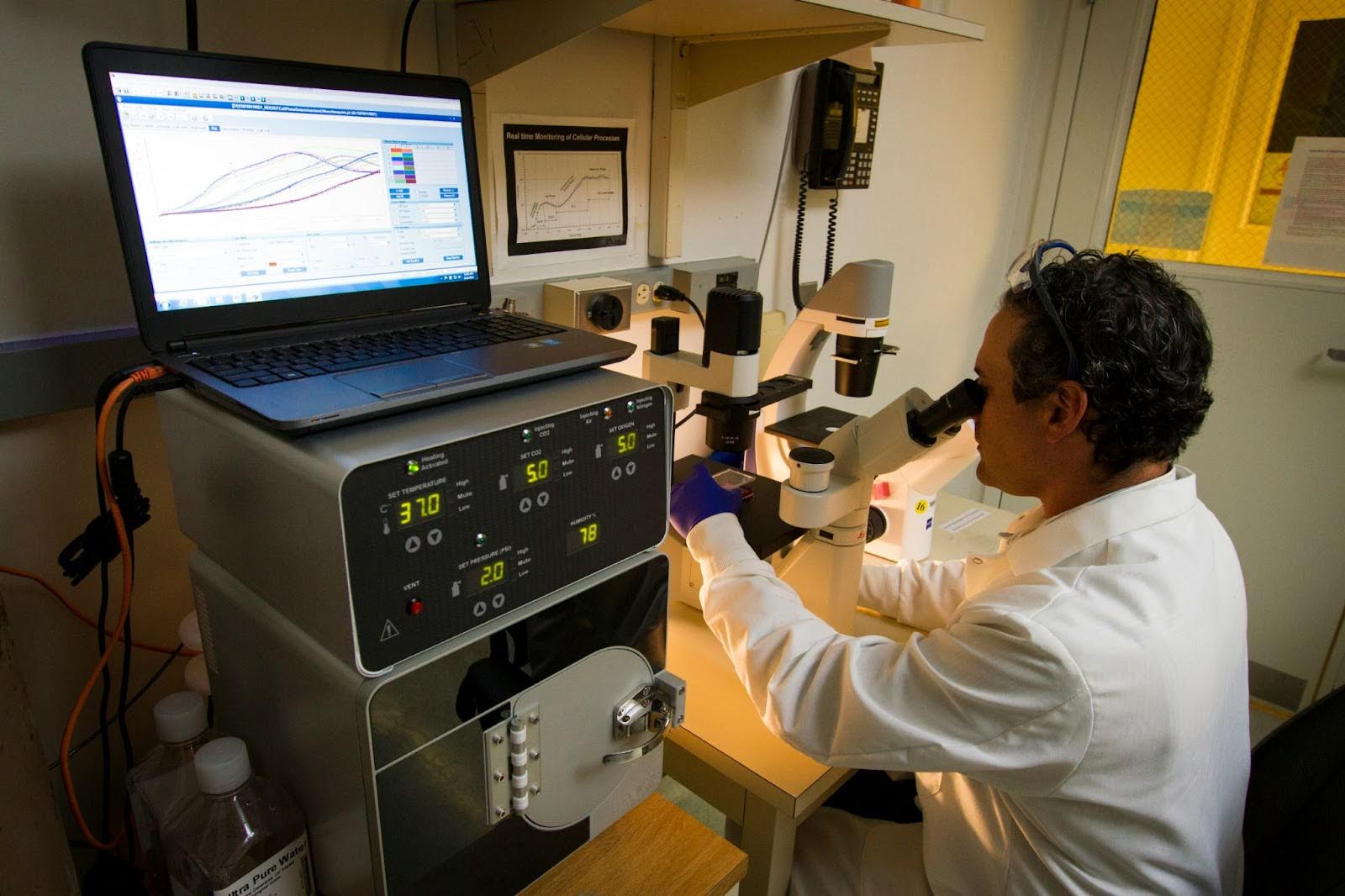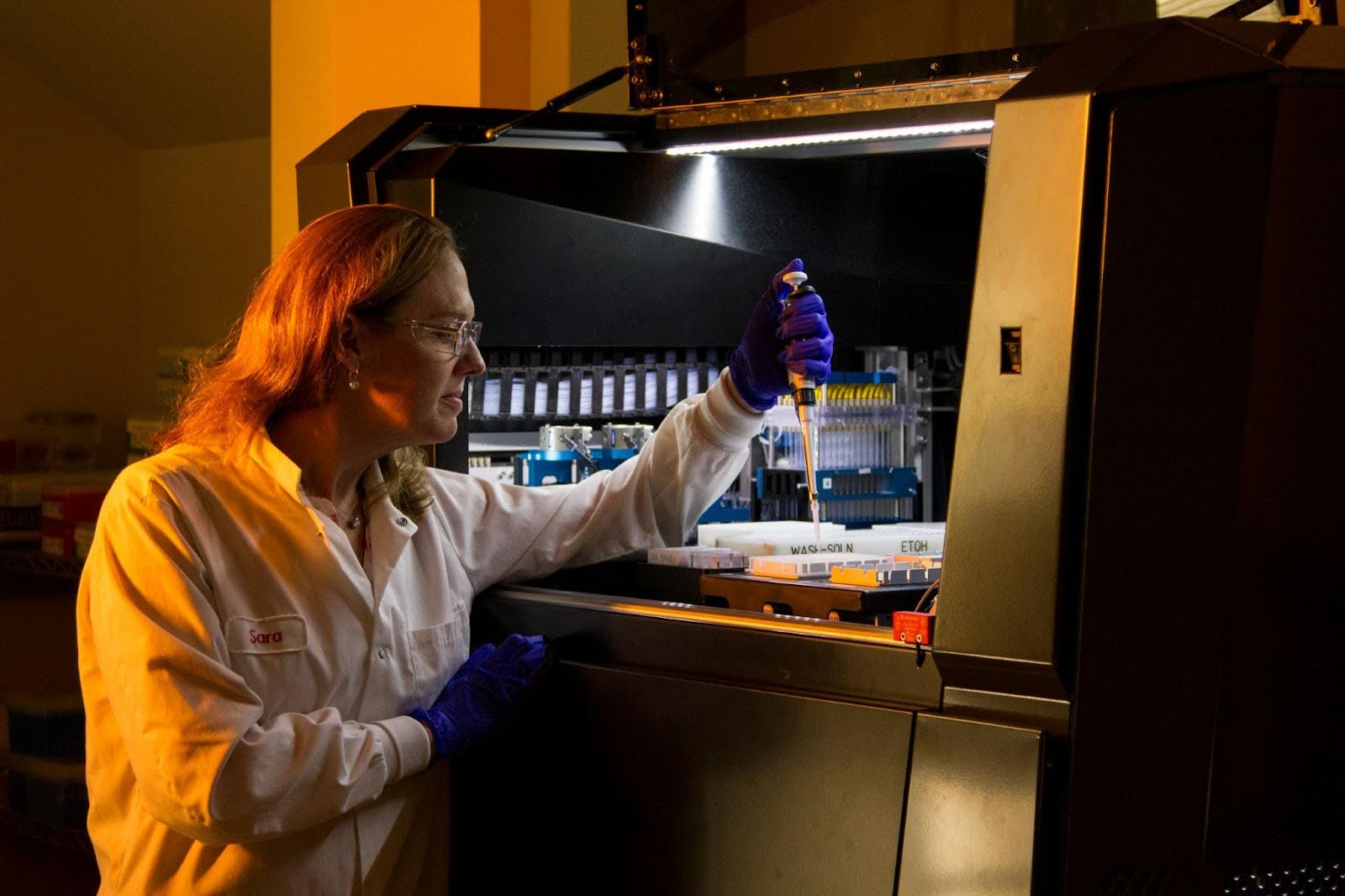Key Takeaways:
- Prostate cancer has a hereditary component. Although other factors can influence your chances of developing prostate cancer, specific gene mutations and family history can increase your risk of the disease substantially.
- Genetic testing can identify mutations linked to prostate cancer. While not everyone needs genetic testing for prostate cancer, it can inform early screening and prevention strategies for individuals at higher risk.
- Lifestyle changes can significantly reduce prostate cancer risk. Although they do not remove the need for screenings recommended by your doctor, these include diet, exercise, and avoiding smoking and alcohol.
Few questions hit like asking about cancer when you’re at-risk. Prostate cancer can be challenging to talk about, especially as we age or watch loved ones grapple with a diagnosis. It’s a disease that doesn’t just affect the body; it reshapes lives, families, and futures. With that in mind, it’s no surprise that one of the most pressing questions people ask about prostate cancer is: Is prostate cancer hereditary? And if it runs in your family, should you be scrambling to get tested right now?
At Catch, we give you the tools to understand your personal risk and take actionable steps. We’re dedicated to helping people like you learn how to prevent cancer and detect any cases that can’t be stopped immediately.
Let’s examine the facts about whether prostate cancer is hereditary and break down what science offers on whether testing is the right move for you.

How Family History And Genetics Contribute To Prostate Cancer Risk
Prostate cancer remains one of the prevalent concerns in men's health. Although the genetics of prostate cancer1 aren’t the whole story, they play a significant role in your risk profile and are not something those affected can afford to overlook.
- A Family History of Cancer: Familial disease patterns suggest a strong hereditary component. Research indicates that the presence of prostate cancer in immediate family members, such as a father or brother, could notably increase your risk. The risk is even greater if they were younger than 65 at the time of diagnosis. Interestingly, if you have a family history of breast cancer or ovarian cancer, it can also raise your risk of prostate cancer.
- Genetic Mutations: Mutations in specific genes such as BRCA1 and BRCA2, which are also associated with breast cancer risk, can raise the odds of developing prostate cancer. Prostate cancer gene testing should look at BRCA1, BRCA2, ATM, CHEK2, PALB2, HOXB13, MLH1, MSH2, MSH6, and PMS2, at least, to help determine your prostate cancer risk.
- Lynch Syndrome: Lynch syndrome, tied to DNA mismatch repair gene defects, is often associated with colorectal cancer, but it also raises the stakes for prostate cancer by a notable margin. For this reason, those who have Lynch syndrome should be extra vigilant about prostate cancer.
Having a family history of prostate cancer doesn’t mean that you’ll develop the disease for sure. Instead, a thorough awareness of your genetic history, including a detailed family medical background, lays the groundwork and strategy to help you learn how to prevent cancer with early detection strategies.
Should I Get Genetic Testing For Prostate Cancer?
While anyone with the means to do so can technically pursue genetic testing, the answer to this question depends on who you are. If you have a strong family history of prostate cancer (or other types of cancer associated with inherited gene mutations), it is recommended that you undergo genetic testing. The reason for this is that if you are positive for gene mutations linked to prostate cancer, your medical provider can provide personalized screening recommendations for prostate cancer.
Getting screened for prostate cancer before symptoms begin means that you can catch it in the early stages, increasing your chances of survival and less invasive treatment. Ideally, individuals at an increased risk for prostate cancer should start getting screened at age 40, which is not standard for those of average risk. If you and your doctor don’t have the information genetic testing provides, you might not get the test that ultimately saves your life.
So, if a close relative of yours, such as your brother or your father, has had prostate cancer, it’s important to discuss genetic testing and screenings with your doctor. Even though not all prostate cancer diagnoses are linked to family history and genetics, they can be an essential piece of the puzzle.

Lifestyle Changes That Reduce Your Prostate Cancer Risk
What else factors into your prostate cancer risk? Lifestyle. While genetics are not something you can change, there are actionable moves you can make to lower your odds of developing prostate cancer. Here’s what the data tells us works.
- The Cancer Prevention Diet: Eat more fruits, vegetables, and whole grains. Tomatoes, with their lycopene punch, and cruciferous veggies like broccoli have shown promise in studies for cutting cancer risk. Reduce or eliminate processed meats and high-fat dairy.
- Move Your Body: Regular exercise doesn’t just keep your heart pumping; it’s tied to lower prostate cancer rates. The American Cancer Society recommends 150 to 300 minutes2 of moderate-intensity physical activity per week for cancer prevention (300+ minutes is ideal).
- Quit Smoking: If you’re still lighting up, stop. Smoking doesn’t just affect your lungs; cigarette smoking affects your overall health and increases your chances of dying from prostate cancer if you develop the disease.3
- Limit Alcohol: Heavy drinking correlates with higher cancer risk across the board, including your risk of prostate cancer. While it’s always best to avoid alcohol altogether, a high alcohol intake and binge drinking affect your prostate cancer4 risk the most and can make tumors grow faster.
Small changes like these add up, and they are an evidence-based way to lower your cancer risk. To protect your health, combine these with screening recommendations and genetic testing, if applicable.
Take Control Of Your Cancer Risk With Catch
Now, you have the facts on prostate cancer. Hereditary risks are real; knowing your story could be the difference between early detection and a late-stage battle. That’s where Catch comes in. We’re your partner in reducing cancer risk, and we're here to arm you with a personalized risk assessment that gets straight to the point and guides you through the following steps.
Here’s why you should act now with Catch:
- Personalized Insights: We examine factors like your family history and lifestyle habits to give you a clear picture of your cancer risk.
- Actionable Steps: No vague advice here. We provide concrete, tailored recommendations to help you stay ahead of the game.
- Empowerment Through Knowledge: Understanding your risk isn’t just data; it’s power. With Catch, you’re in the driver’s seat.
- Early Detection Focus: Catching cancer early can save lives. Our goal is to make that possible for people like you.

Final Thoughts
When wondering whether prostate cancer is hereditary, take your time. Genetics play a role, especially if you have a family history of the disease. However, lifestyle and environmental factors also contribute to the mix. The data is precise: men with close relatives who’ve had prostate cancer are at a higher risk, and that risk climbs if the diagnosis came early or affected multiple family members.
It can be challenging to find out that you’re high-risk, but if you are, it’s also a critical first step in cancer prevention.
Detecting prostate cancer early can save your life, as can prevention. Don’t wait for symptoms to dictate your next step. Take control now and learn your personal risk for 21 major cancer types, including prostate, with Catch for just $5/month.
Read also:
- Why does early detection matter?
- What The Cancer Prevention Diet Actually Looks Like
- Can a blood draw tell you whether you have cancer?
Frequently Asked Questions About Prostate Cancer And Heredity
Is prostate cancer genetic?
Prostate cancer is highly hereditary, and genetics can influence your risk. The National Cancer Institute indicates that inherited factors cause 60% of prostate cancer risk. Other notable risk factors for the disease include age, lifestyle, and ancestry.
Does prostate cancer run in families?
It can. However, prostate cancer can also occur in individuals who have no family history of the disease.
Should I get tested for prostate cancer if my father had it?
If your father or other close relatives had prostate cancer, it’s worth discussing testing with your doctor. Family history can increase your risk significantly, especially if the relative in mind developed prostate cancer at a younger age (below age 55).
What are the recommendations for prostate cancer screenings?
Screening recommendations vary based on risk. Individuals with a family history of prostate cancer may need to get their first prostate cancer screening at 40.
What does the US Preventive Services Task Force (USPSTF) recommend for prostate cancer screenings?
The US Preventive Services Task Force (USPSTF) recommends that men aged 55 to 69 who are at an average risk of prostate cancer and do not have any symptoms of the disease should make individual decisions about getting screened5 for prostate cancer with a prostate-specific antigen (PSA) test. Your doctor can provide individualized guidance regarding whether a screening is right for you.
What tests are used to screen for prostate cancer?
Several types of tests can be used to screen for prostate cancer. A PSA (prostate-specific antigen) blood test and digital rectal exam are standard. Catch empowers you with tailored insights to decide when and how to screen.
What are the signs of hereditary prostate cancer?
Hereditary prostate cancer often presents similarly to non-hereditary cases. However, they may occur at younger ages or alongside other cancers (like breast or ovarian) in the family due to shared genetic mutations. Watch out for signs like difficulty urinating, blood in urine, or pelvic pain, and talk with your doctor if they show up.
Are there specific tests for hereditary prostate cancer?
There are no tests unique to hereditary prostate cancer, but genetic testing for mutations can identify your inherited risk. Standard screening methods, such as PSA tests and biopsies, are used during the diagnostic process regardless of if cancer is suspected to be hereditary.
Sources:
- National Cancer Institute. (n.d.). Genetics of Prostate Cancer (PDQ®)–Health Professional Version. https://www.cancer.gov/types/prostate/hp/prostate-genetics-pdq#_2002
- American Cancer Society. (n.d.) American Cancer Society Guideline for Diet and Physical Activity. https://www.cancer.org/cancer/risk-prevention/diet-physical-activity/acs-guidelines-nutrition-physical-activity-cancer-prevention/guidelines.html
- Al-Fayez, S., & El-Metwally, A. (2023, February 6). Cigarette smoking and prostate cancer: A systematic review and meta-analysis of prospective cohort studies. Tobacco induced diseases. https://pmc.ncbi.nlm.nih.gov/articles/PMC9900478/
- Macke, A. J., & Petrosyan, A. (2022, February 28). Alcohol and prostate cancer: Time to draw conclusions. Biomolecules. https://pmc.ncbi.nlm.nih.gov/articles/PMC8945566/
- Centers for Disease Control and Prevention.(2025, January 29). Should I Get Screened for Prostate Cancer? https://www.cdc.gov/prostate-cancer/screening/get-screened.html










.svg)



